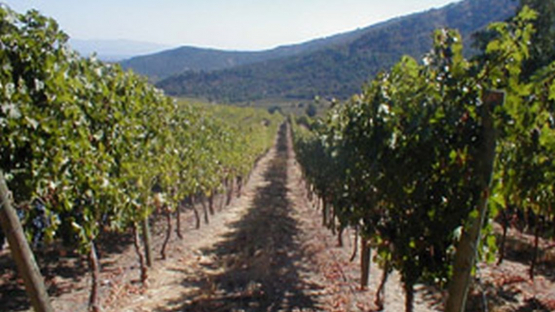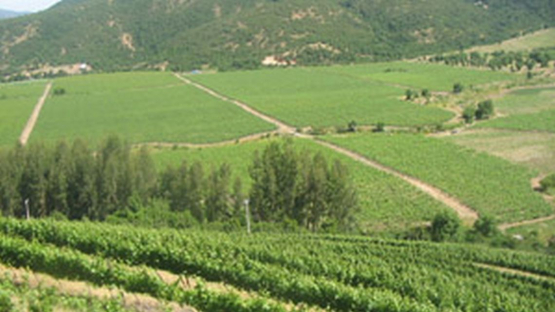Through the IAEA Technical Cooperation project on "Integrated Watershed Management for the Sustainability of Agricultural Lands" with the Agriculture and Livestock Service (SAG), Ministry of Agriculture, the soil redistribution rates associated with the establishment of vineyards were investigated and the influence of vineyard management practices and land slope on soil redistribution rates were assessed using nuclear and related techniques to provide information to government's environmental protection and production program.

If you would like to learn more about the IAEA’s work, sign up for our weekly updates containing our most important news, multimedia and more.
Road to Recovery: Protecting Chilean Agriculture and Environment
Wine production in Chile currently accounts for about 11.4% of the Gross National Product and is an important component of Chilean national economy.
About 32,500 hectares are planted with vineyards in the VIth Region, south of Santiago. Much of this land area has been subjected to severe soil degradation as a result of soil erosion processes. Soil erosion is affecting about 60% of the land area in Chile with soil degradation is severe in 22% of the territory. In fact about 60% of Chilean land area has been affected by erosion processes. Documentation of soil erosion magnitudes is key for assessing soil losses, associated reduction in soil quality and productivity and for understanding the transfer and fate of agrochemicals under Chilean agro-environment.

Figure 2

Figure 3
Results obtained from the study showed that soil redistribution rates obtained for different study sites using nuclear techniques emphasized the effectiveness of the terraces in reducing soil erosion within vineyards. This updated technology has been transferred and is now in use in environmental protection and production programs.
View of the vineyard area showing vines planted in rows aligned downslope and vines planted on terraces (Photos courtesy of Ms A. Nario from the Agriculture Section, Chilean Nuclear Energy Commission, Santiago, Chile).


